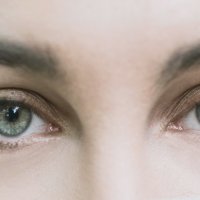Home > Blog > Skin and Body
7 causes of skin cancer and how to avoid it
What is skin cancer?
Skin cancer is defined as an abnormal growth and multiplication of the skin cells. For many years, it has been associated with exposure to sunlight rays. Research has concluded that although the ultraviolet radiations of the sun contribute to a high percentage of skin cancer diagnosed globally, there are other factors responsible for this menace. The common forms of skin cancer are basal cell carcinoma, squamous cell carcinoma, and melanoma while there are other less common types like Merkel cell carcinoma, Kaposi sarcoma, and sebaceous gland carcinoma.
What are the causes of skin cancer?
There is no single cause of skin cancer and scientific research attributes different factors to the widespread cases of skin cancer. Some of the risk factors for skin cancer are:
- Exposure to the ultraviolet (UV) radiation from the sun rays. One of the most common causes of skin cancer is the prolonged exposure to the sun that exposes the skin to the ultraviolet radiation of the sun. The ultraviolet radiations can also result from sunlamps and tanning booths. Regardless of the source of the ultraviolet radiations, the amount of UV exposure is a huge risk factor for skin cancer. The risk factor depends on the duration your skin is exposed to the UV radiations. One misconception is that during the cloudy days, the risk to UV radiations is minimized. This notion, however, is misleading since the radiations easily penetrate the cloud. As such, it is important to protect your skin regardless of the weather condition.
- Skin tone: Another factor that is responsible for the rising cases of skin cancer is the skin tone. If you have a darker complexion, it means that you have more melanin as compare to people with fair skin. Melanin is responsible for protecting the skin from the harmful UV radiations and the darker you are, the more melanin you have hence better protection from the UV radiations. An experiment in 2010 by ACS found out that people of Caucasian origin were ten times more exposed to skin cancer as compared to people of African origin who have a dark skin complexion. People who have skin conditions such as Albinism are also more exposed to skin cancer since they lack melanin.
- Immune system suppression: The immune system of an individual is responsible for fighting diseases and infections in the body. Some people, however, have been diagnosed with a weaker immune system as compared to others who have a strong immune system. People with a weak immune system are more likely to develop skin cancer while those with a strong immune system have a lower risk of developing the condition. A weak immune system can be inherited or caused by diseases such as HIV/AIDS that suppress your immune system.
- Avoid environmental carcinogens. If you are exposed to some environmental carcinogenic substances like arsenic materials, you can develop skin cancer.
- History of skin cancer: Research has shown that a person who has previously been diagnosed with skin cancer has a higher risk of developing another skin cancer as compared to those who have never contracted it.
- Xeroderma Pigmentosum: This disease damages your body's immune system and its ability to repair damaged skin cell DNA. Scientific research has shown that persons who have been diagnosed with Xeroderma pigmentosum are more likely to develop skin cancer as compared to those who do not have the disease. Individuals who are from a family with Xeroderma pigmentosum history, therefore, are more likely to contract the disease as compared to those from families without a history of the disease.
- Gender: Gender has a bearing in the prevalence of skin cancer in people. Scientific research has shown that men are more likely to develop skin cancer as compared to women. Information on the reason for higher skin cancer prevalence in men than women is still scanty.
How do you prevent skin cancer?
There are various interventions that each person can adapt to minimize the chances of him or her developing skin cancer. The first step in preventing skin cancer is conducting regular cancer screens so that it can be treated early if it exists to prevent it from growing. You can trust us at Brightside Clinic Medical Centre Byron Bay to conduct a cancer screening for you and your loved ones.
The preventive measures for skin cancer are:
- Use of sunscreen: One way of minimizing your chances of developing skin cancer is by wearing sunscreen when out on the sun. Research has shown that by applying a sunscreen, you can reduce the effects of UV radiations on your skin.
- Wearing protective clothing when out in the sun: If you find wearing a sunscreen a difficult endeavor, you should consider covering your body. You can use protective clothing like thicker fabrics, hats, and long sleeved shirts to protect your skin from UV radiation. By using protective clothing, you can protect yourself from the harmful UV radiations, thus decreasing the risk of developing skin cancer.
- Limit your exposure to the sun: Another simple but more effective way is by limiting your exposure to the sun's UV radiations. If you have been spending most of your time on the sun, you should consider alternating between the shade and the sun to prevent prolonged exposure to the UV radiations. It is recommended that you avoid direct sunlight from 10 am to 4 pm when the UV radiations are at the highest intensity.
- Consider wearing sunglasses: Skin cancer can be of different forms and research has shown that some forms of the disease can be found inside your eyes. This makes leaving your eyes exposed to the sun a risk factor for skin cancer. By wearing sunglasses, you can get 99 percent protection from harmful UVA and UVB rays.
- Avoid tanning beds since they are known to emit UV rays that could lead to skin cancer.
More to Read:
Previous Posts:






